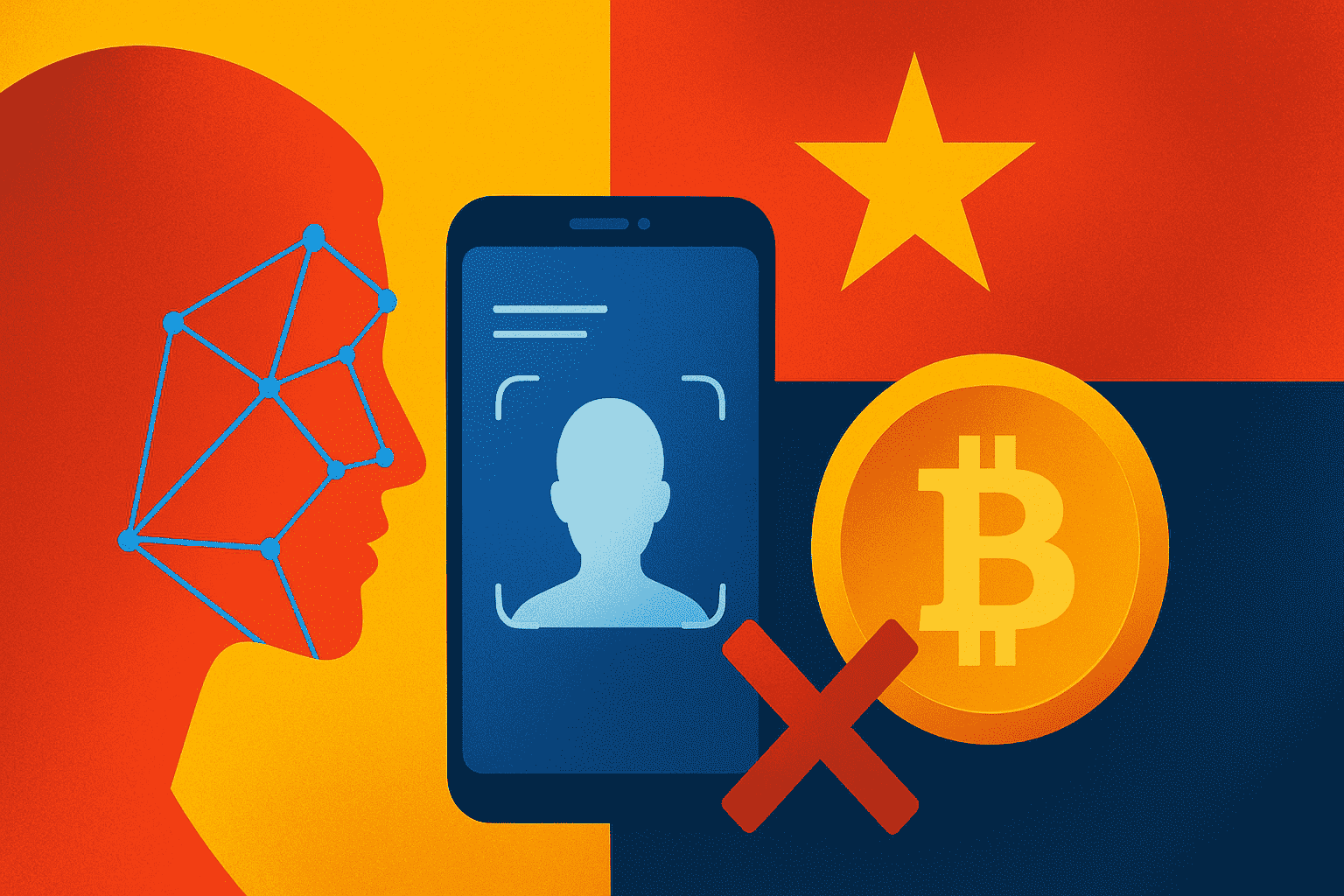Vietnam Shuts Down Millions of Bank Accounts Over Biometric Rules

Vietnam has begun a sweeping crackdown on bank accounts that fail to comply with its new mandatory facial biometric identification system, sparking debate over financial inclusion and whether cryptocurrencies like Bitcoin offer a viable alternative for affected users.
Biometric Verification Now RequiredVietnam just froze 86m bank accounts because account holders didn't comply with new biometrics laws that require a face scan or fingerprint for account verification.
If users don't comply by the 30th they'll lose their money. This is why we bitcoin. https://t.co/hIK30vn1XR
— Marty Bent (@MartyBent) September 18, 2025
As of September 1, 2025, banks across Vietnam are closing accounts deemed inactive or non-compliant with new biometric rules. Authorities estimate that more than 86 million accounts out of roughly 200 million are at risk if users fail to update their identity verification.
The State Bank of Vietnam has also introduced stricter thresholds for transactions:
The policy is part of the central bank’s broader “cashless” strategy, aimed at combating fraud, identity theft, and deepfake-enabled scams.
AI Fraud Sparks Government ActionThe timing follows several high-profile fraud cases. In May, police dismantled a network that used AI-generated facial scans to bypass banking checks, allegedly laundering more than 1 trillion VND (around $38 million USD).
Officials argue that biometric authentication has already reduced fraudulent incidents in some cases, even if direct causality remains hard to prove.
Impact on Foreigners and Inactive AccountsWhile many Vietnamese citizens have updated their biometric data without issue, the measure has disproportionately affected:
These logistical hurdles, such as linking one-time passwords to local numbers and synchronizing crypto wallets, have added friction, fueling arguments from the self-custody crypto community, which views Bitcoin as a hedge against centralized banking restrictions.
Bitcoin as an Alternative?Vietnam's central bank just initiated closure of >86 million bank accounts starting Sept 1
All the accounts close lack the user biometric information which gives the central bank next-gen financial surveillance ability
The official reason for closures: "to prevent fraud" 🤔 pic.twitter.com/YwKxTsRyJ6
— Daniel Batten (@DSBatten) September 17, 2025
For crypto advocates, Vietnam’s move illustrates how access to fiat funds can suddenly depend on state rules or biometric checks. By contrast, holding digital assets in self-custody wallets removes reliance on banks and centralized identifiers.
However, this “Bitcoin refuge” comes with its own risks:
Ultimately, Vietnam’s biometric banking purge underscores the tension between security, inclusion, and personal monetary sovereignty. While it may strengthen defenses against AI-driven fraud, it also raises fresh concerns about citizens’ right to access and control their own money.
As the digital economy expands, the balance between state control and individual financial freedom is likely to remain a flashpoint.